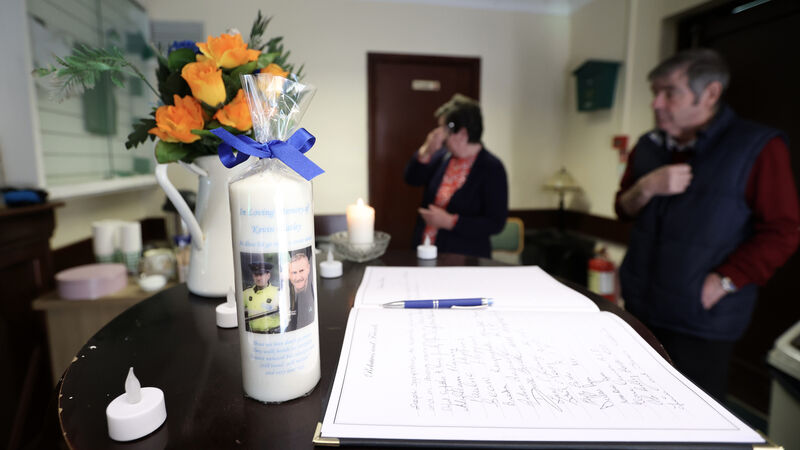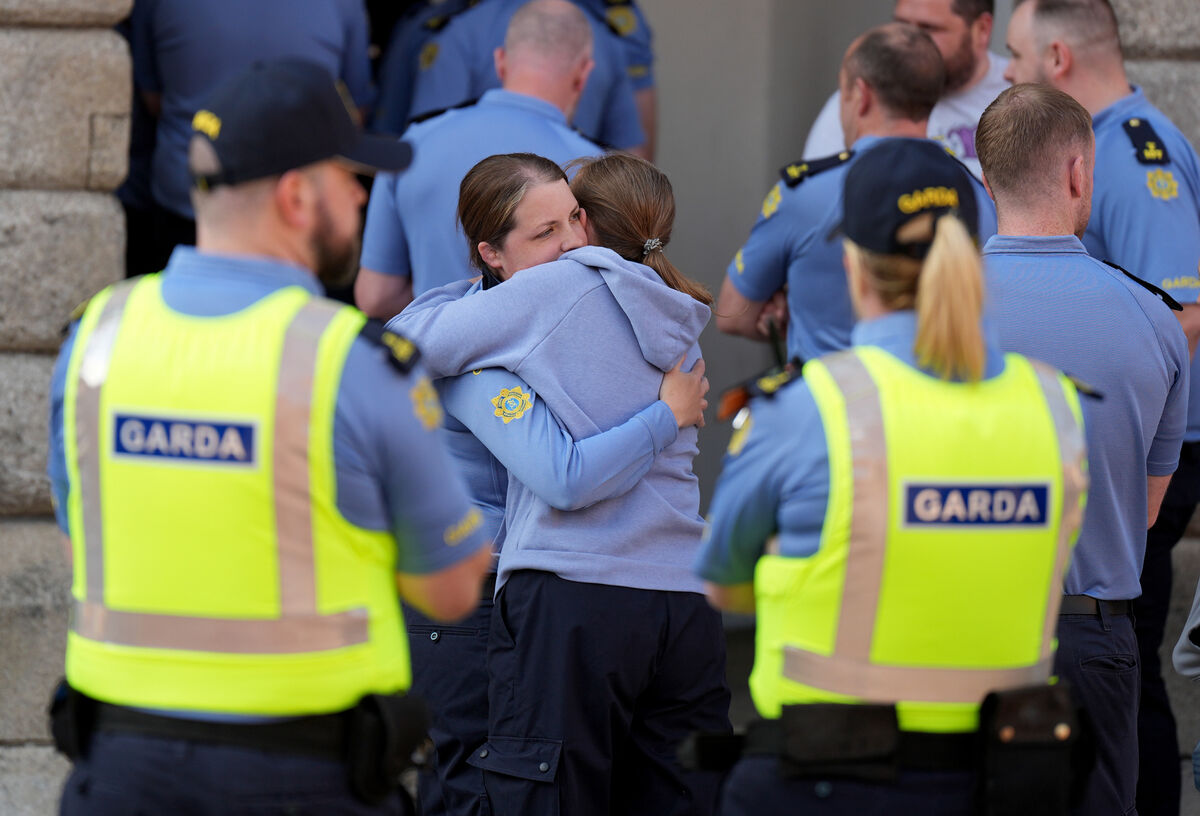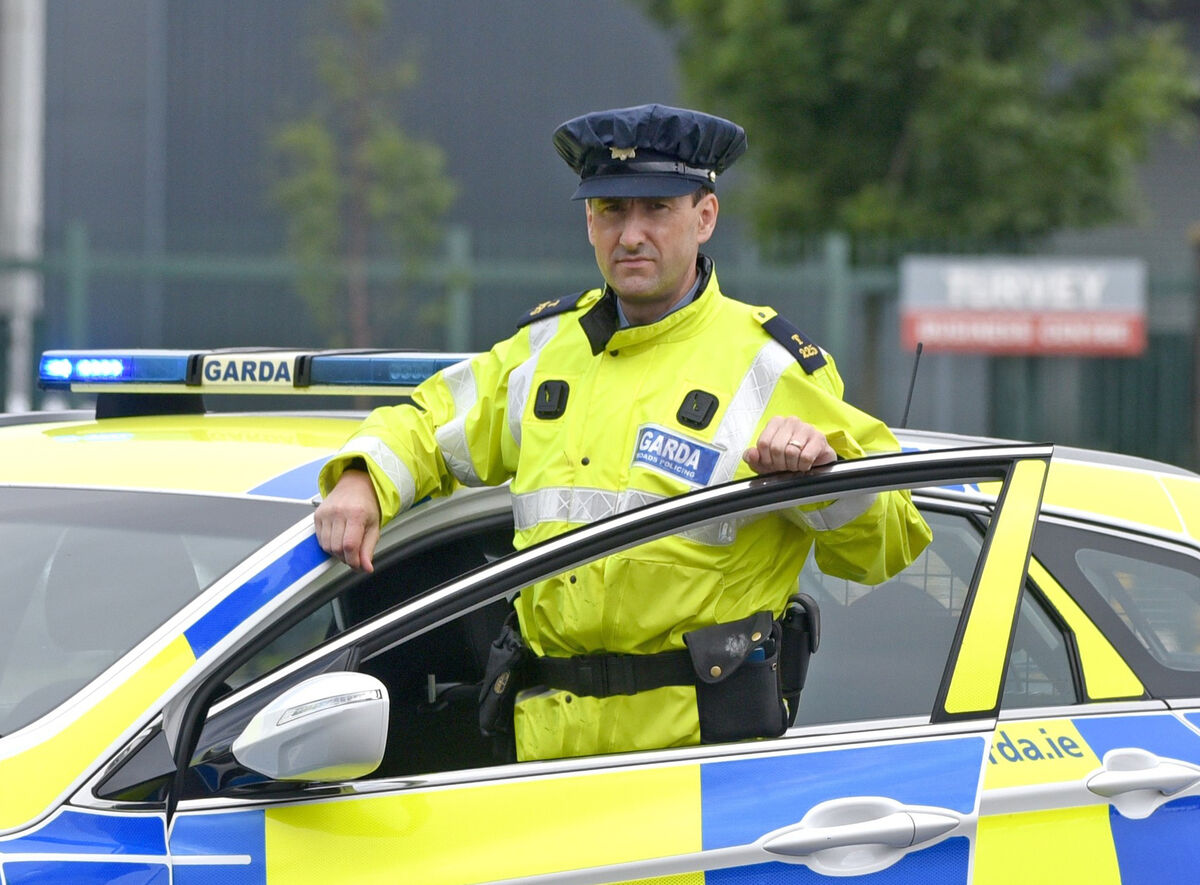Irish Examiner view: Tributes to the late Garda Kevin Flatley

The book of condolence for Garda Kevin Flatley at O'Dwyers GAA club in Balbriggan, Dublin. Picture: Sasko Lazarov/RollingNews



The book of condolence for Garda Kevin Flatley at O'Dwyers GAA club in Balbriggan, Dublin. Picture: Sasko Lazarov/RollingNews
The tragic and in some ways inexplicable death on Sunday of Garda Kevin Flatley while manning a speed checkpoint in north Dublin is an indication of the fragility of life for each and every one of the people who use our roads daily.
We all know that the rules of the road bestow on us the parameters of behaviour which are legal, but we also know that there are moral boundaries which cannot be crossed without putting ourselves and innocent others at risk of losing life.
But sometimes, it seems, we are not prepared to follow either the legal guidelines or those unwritten rules which corral our on-road behaviour. The result is we are all too often seeing accidents of the sort with which we have become too familiar, and which have resulted in the loss of life and, as is too often the case, many lives.

The almost daily litany of horror crashes on Irish roads seems endless and the seemingly endless catalogue of death they bestow on the nation — not to mention individual families, spouses, children, and parents alike — seems to be an almost accepted part of modern life.
It should not be this way, and it cannot continue to be so.
Garda Flatley was an experienced member of the Roads Policing Unit and, as such, only too well aware of the circumstances in which lives are threatened by peoples’ on-road behaviour.
He would have seen on many occasions during his career the horrendous results of what happens when people take things beyond the limit.
Sadly, on Sunday, he himself became a victim and now leaves behind a distraught wife and two young girls, as well as an extended family mourning his loss. He also leaves after him a bewildered group of colleagues who are left to wonder what more they can do to stop preventable deaths such as his.

Tomorrow will see the sentencing of a man who has pleaded guilty to the deaths of two young Monaghan debutantes and who, a court was told last week, was driving at speeds of up to 150 km/h on wet roads prior to the accident which cost those girls their lives.
It may matter to their families what sentence is imposed on that man, but what will remain forever with them that those deaths were needless. It will be the same for Garda Flatley’s colleagues and his family.
Housing crisis
We all know the effects of the housing crisis on a youthful population trying to get their foot in the door of their own homes, but one disturbing aspect of the issue is now making its presence felt on our rural health services.
Across Cork and Kerry, rural health services are being crippled by their inability to attract nurses. This is having a direct impact on the provision of respite care, the necessity for people to receive community care in their own community and even the ability of doctors to release patients from hospital because necessary rehabilitation care is not available to them at home.
The inability of nurses looking to fill positions across rural Kerry and West Cork to find suitable rental accommodation in or near the areas where they want to work, is stymieing their job prospects and also frustrating the needs of the communities they wish to serve.
Staff shortages mean that facilities are lying empty when they could be of great service to the people — especially the elderly — in those places. An example is the West Kerry Community Hospital in Dingle, where 11 beds in a purpose-built module currently lie idle because they cannot be staffed.
Although HSE South-West has plans to open seven beds in the Kenmare Community Unit in the coming weeks, the holes in the system being caused by staffing issues related to the sourcing of accommodation for them, is something that has to be addressed.
It is a source of grave concern that while the money and facilities are often in place to provide the necessary care local people — and particularly those who are aged — really need within their own communities, the staff to work them cannot be accommodated.
There may be a horse-and-cart situation evolving here and it may only be a small part of the wider housing crisis, but it is yet another factor the Government has to blend into its overall housing plan.
That, unfortunately, is not something this administration is showing any sign of getting to grips with.
Brazen dealers
The drugs scourge up and down our country was laid bare on these pages yesterday with a case study examining the ease with which drugs can be purchased in Limerick, and at increasingly lower costs.
With student accommodation in the city being targeted by fliers put through letterboxes with menus of various illegal drugs available, the city has become — despite huge efforts to tackle it — a place where people can source anything from ‘coke’ to the even more insidious crack cocaine and plenty of choices in between.
That the purveyors of these drugs are brazen enough to post QR codes on lamp posts connecting consumers to a website promoting a range of drugs which can be delivered to their door within 30 minutes is indicative of a new and more insidious threat to the youth of this country. T
he fact that dangerous narcotics such as heroin, MMD, and crack cocaine now appear to be more affordable than ever before makes them even more dangerous.
The University of Limerick has an active, comprehensive, and well-promoted health campaign for its students aimed at reducing harm-related substance use, but in the face of aggressive criminality intent on making huge profits from the sale of illegal drugs, theirs is an uphill battle.
CONNECT WITH US TODAY
Be the first to know the latest news and updates